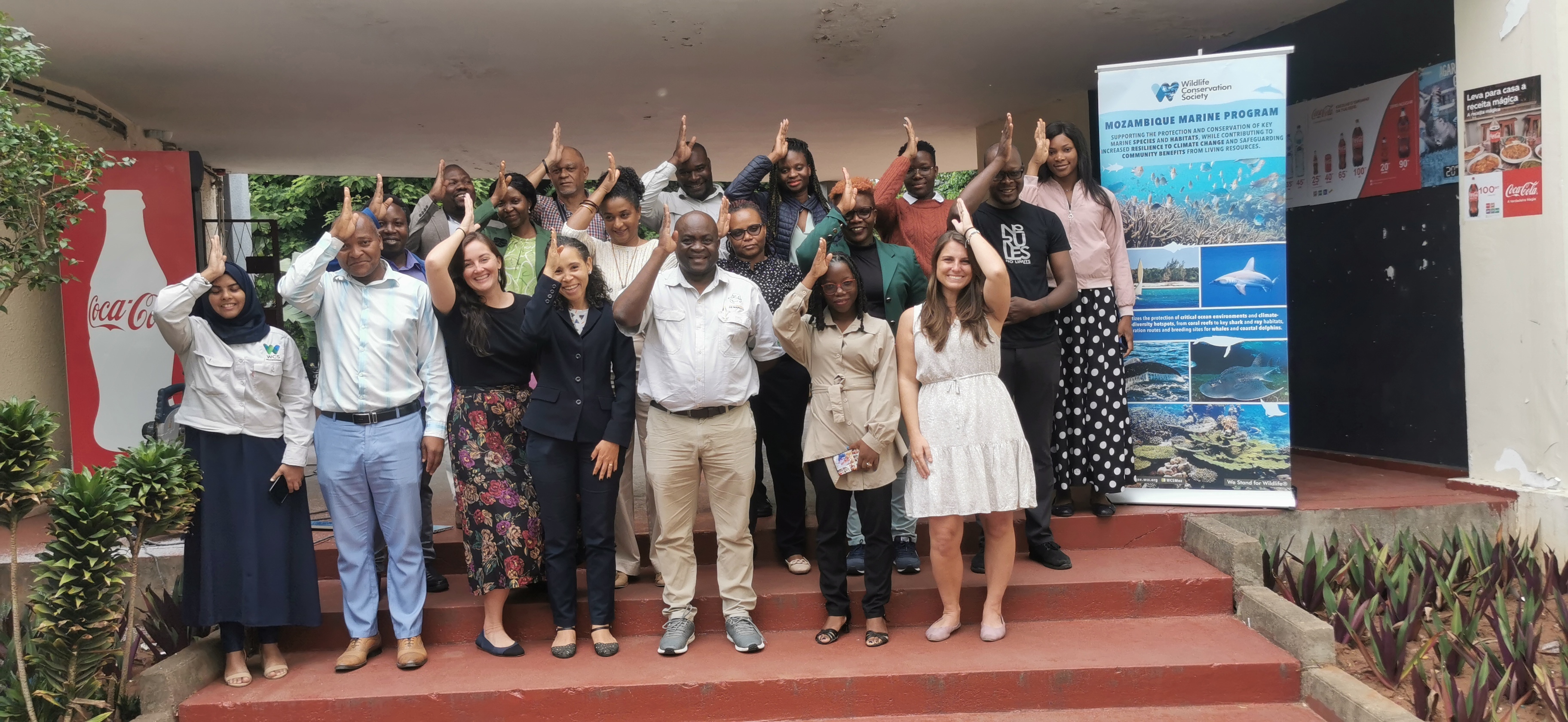In the last 20 years, 143 shark and ray species have been listed on Appendix II of the Convention on International Trade in Endangered Species of Wild Fauna and Flora (CITES), comprising 90% of all internationally traded shark and ray species.
Since 2021, the Oceanographic Institute of Mozambique (InOM) and the National Fisheries Administration, IP (ADNAP, IP), with support from the Wildlife Conservation Society (WCS), have been working on 1) improving knowledge about CITES in Mozambique and 2) increasing capacity regarding the identification of CITES-listed shark and ray species susceptible to international trade and export.
CITES shark and ray species identification workshop with shark expert, Dr Rima Jabado (@Jorge Sitoe/WCS)
Despite the country's efforts to accurately report the export of shark and ray derivatives, there is a need for efficient and cost-effective methodologies to effectively identify shark and ray products being traded internationally. Considering this, a portable rapid genetic sequencer tool for identifying sharks and rays has been provided to Mozambique. The rapid genetic sequencer, known as the Magnetic Induction Cycler (MIC), uses PCR tests which have been developed specifically to identify shark and ray species. This tool will enable the Mozambican authorities to confirm the presence of suspected CITES-listed shark and ray species in shipments destined for export, thus helping to curtail the illegal trade of such products through improved enforcement of CITES trade regulations.
A workshop held at the National History Museum (MHN) in Maputo during the week of November 13th provided training and awareness regarding the use of the MIC. The event comprised 22 participants from 11 institutions, with training sessions led by Ms Valerie Hagan from Mote Marine Laboratory in Florida, USA, the entity that developed the rapid PCR tests used in the MIC.

Family photo with participants of the workshop (@Suzana Mucavele/MHN)
Ten staff members from CITES fisheries inspection, research, and conservation entities, including the Biotechnology Center at the University of Eduardo Mondlane (CB-UEM), National Fish Inspection Institute (INIP), InOM, MHN, and WCS, participated in two training sessions. These sessions involved hands-on installation, trialling, and operationalization of the rapid genetic sequencer, enabling the staff to use it correctly and effectively, thus helping to improve the country's capacity to validate species identification, as part of efforts towards enforcing international trade controls.
Training session with five staff members of the InOM, INIP, MHN, CB-UEM and WCS (@Naseeba Sidat/WCS)
This awareness and training form part of a broader project titled Equipping Southwest Indian Ocean countries to combat illegal shark trade, which is funded by the UK government under their Illegal Wildlife Trade Challenge Fund.